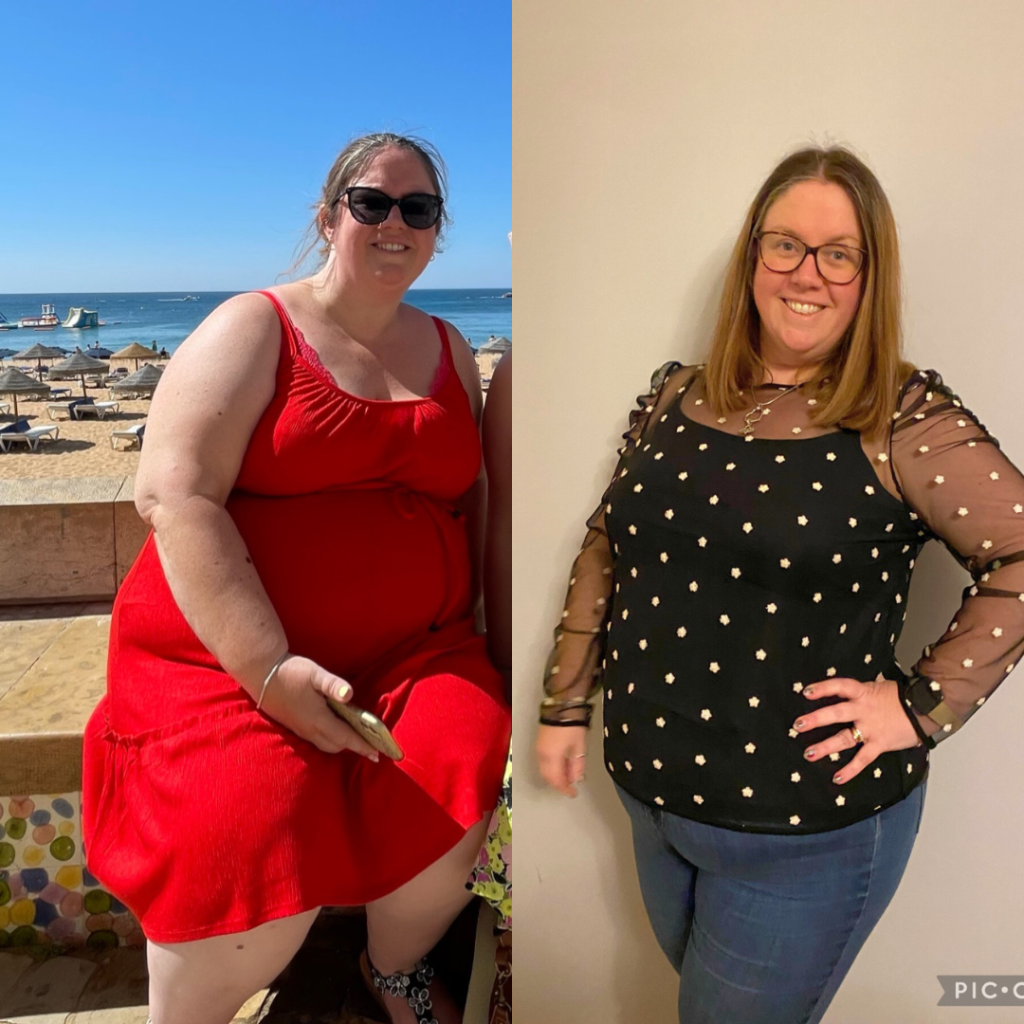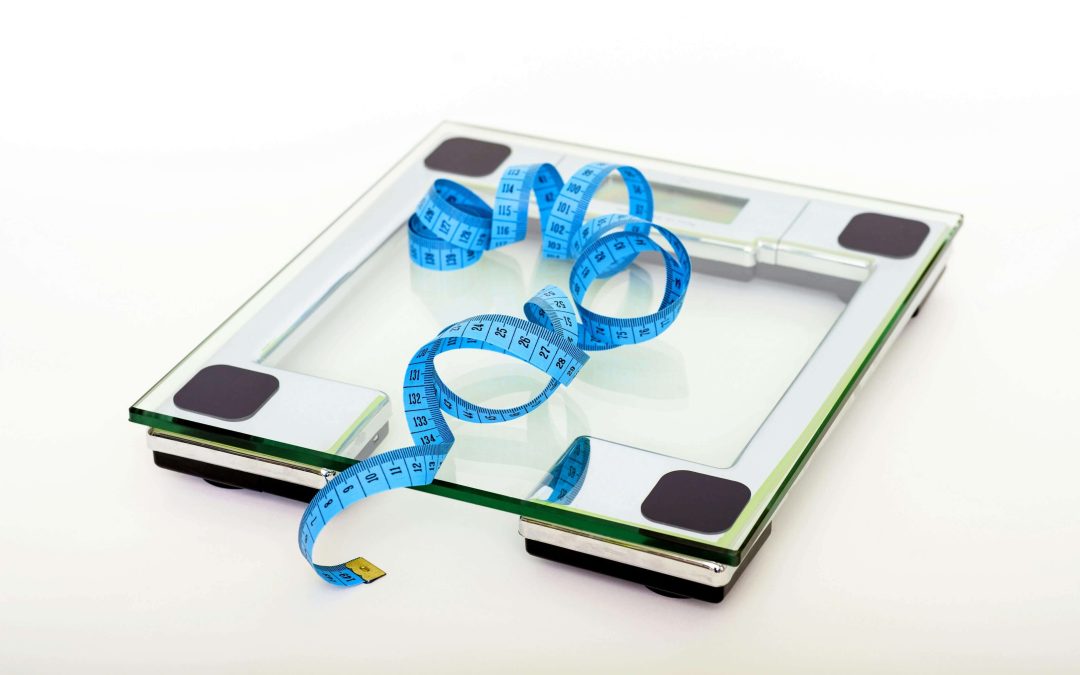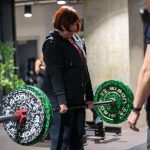If you’ve been wondering if you should weigh yourself daily, you’re not alone. Many women ask whether stepping on the bathroom scales every morning is helpful or harmful during a weight loss journey.
While weighing yourself daily can provide insight into your body weight trends, it can also lead to unnecessary stress if you don’t understand what those numbers really mean.
For women in their 40s, 50s, and 60s, especially in menopause, the scale often feels like an enemy. Hormonal changes, shifts in muscle mass, and water retention can make your body weight fluctuate, leaving you frustrated when you’re trying everything to lose weight.
But the truth is that the number on the scale is only one piece of the puzzle.

Why You Should Think Twice About Weighing Yourself Every Day
Daily weigh-ins might sound like a good way to stay accountable, but they often create more problems than solutions. Here’s why:
1. Natural Fluctuations Can Be Misleading
Your weight can fluctuate by 2–5lbs daily depending on water retention, hormones, digestion, and sodium intake. If you weigh yourself every day, you may mistake these temporary changes for fat gain or fat loss, leading to frustration and unnecessary worry.
2. It Can Increase Stress and Obsession
For many women, the scales can quickly become a source of stress. Seeing the number go up, even temporarily, can lead to negative emotions, self-criticism, and even giving up on healthy habits.
Daily weigh-ins can shift your focus from progress to perfection, which is a sure way to derail motivation.
3. Weight Doesn’t Tell the Whole Story
The scales don’t show how much of your body is fat, muscle, or water. You might lose inches from your waist and hips, gain strength, and feel fitter, yet the scales stay the same.
If you only rely on weight, you miss these non-scale victories that matter just as much (if not more).
4. Progress Is Better Measured Weekly
Instead of weighing yourself daily, a weekly check-in at the same time and under the same conditions gives a more accurate reflection of your progress. Pair this with other measures.
You should look at things like waist circumference, photos, or how your clothes fit for a clearer picture of your transformation.
Weighing yourself daily doesn’t always reflect what’s really happening in your body.

“I was pretty fed up with the way I felt in relation to my body- my weight had gradually crept up to nearly 80 kg. The more I tried to concentrate myself to lose some weight, the more I would find myself thinking about food. I was frustrated, and resigned to the fact that I was developing middle-age spread and nothing would work. In just over a year with Trinity, weight wise I have lost 13kg, this is about more than weight or size though- I feel so much better in myself-energy wise, confidence wise and mentally. I sleep so much better, my menopausal symptoms have virtually abated.”
– Helen Huntington (57), Trinity Client
What Should You Measure Instead of the Scales?
Instead of relying only on the numbers on the scale, here are more accurate and motivating ways to track your progress.
1. Track Your Body Composition
A body composition scale or smart scale can measure changes in fat percentage, muscle mass, and water weight. These give a clearer picture than body weight alone, showing whether your body is becoming leaner and stronger, even if the number in pounds stays the same.
2. Pay Attention to Clothing Fit
Notice how your jeans, dresses, or favourite tops feel over time. If they start to zip up easier or you feel more comfortable in your wardrobe, it’s a clear sign of progress, even if the scale hasn’t shifted much.
3. Use Progress Photos Over Time
Take photos every 2–4 weeks, ideally in the same outfit and lighting. Comparing side-by-side pictures makes it easier to spot subtle changes in your body composition that the mirror or scale readings might not reveal day-to-day.
4. Monitor Strength and Fitness Goals
Track how many squats you can do, how heavy you can lift, or how long you can walk without feeling tired. These achievements are just as important as weight measurements because they reflect improvements in strength, stamina, and overall health.
5. Notice Energy and Lifestyle Changes
Better sleep, improved digestion, more energy to play with the grandkids, or less joint stiffness are all signs your lifestyle shifts are working. These changes may not show up on a scale, but they mean your body is responding positively to new habits.

“Before I started with Trinity I weighed 21 stone 9 lbs, I just felt low, unattractive and out of breath most of the time. I decided to focus on myself and my mindset shifted by understanding I couldn’t go on like this. Trinity offered something different to other diets I had tried. I stopped binging, planned my meals so I didn’t have to grab last minute and also invested time in myself. Here I am after 16 weeks with Trinity having lost 2 stone and 10 lbs (17.5 kgs), 9 cms off my waist and 12 cms off my hips. I have not given up everything and have eaten out numerous times but I have made better choices and they made me feel proud of myself.”
– Nicki Bunce (46), Trinity Client
5 Helpful Weight Loss Tips for Women Over 40
1. Choosing the Right Exercise for Your Body
Traditional workouts like HIIT, spin, or running can stress your body and hormones during menopause, making fat loss harder. Instead, focus on Low-Impact Strength Training (LIST), which is lifting weights in a controlled way.
LIST helps you build muscle, boost metabolism, and tone your body without over-stressing your system. Just three 30-minute sessions a week can deliver amazing results.

2. Walking 5,000+ Steps a Day
If your days are mostly desk-bound, chances are you’re only hitting 2,000 steps or less. This makes fat loss harder because you’re not burning enough calories. Increasing your steps by 5,000 a day burns around 200 extra calories, which is enough to lose half a pound a week.
Aim for small increases and build from there.
3. Getting Better Sleep
Lack of sleep disrupts appetite hormones (ghrelin and leptin), increases cravings, and raises cortisol levels, which makes weight loss harder. Just one poor night can lead to eating 300 extra calories the next day.
Aim for 7–8 hours most nights and work on improving your sleep environment, limiting caffeine, and reducing screen time before bed.
4. Increasing Your Protein
Strength training creates the stimulus for muscle, but without enough protein your body can’t build it. Think of protein as the building blocks for a faster metabolism.
Women over 40 often under-eat protein, which stalls fat loss. Prioritise lean protein in every meal to help you feel fuller, recover faster, and maintain muscle while losing fat.
5. Doing a Diet Makeover
It’s easy to fall into habits with foods that stall progress. A Diet Makeover involves cutting out four common culprits: Wheat, Alcohol, Dairy, and Sugar (WADS). Aim to cut these out for 1-2 weeks to reset your body.
These foods are high in calories, addictive, and disruptive to hormones. Many women drop 4–6lbs in just two weeks with this reset, and it helps break unhealthy cycles.
Should You Weigh Yourself Daily? The Bottom Line
So, should you step on the bathroom scales daily? It depends. If weighing yourself daily motivates you, helps you stay consistent, and you can look at the numbers logically, it may help your weight loss journey.
But if you find yourself stressed, discouraged, or stuck in a negative cycle, focus instead on long-term trends and non-scale victories.
Losing weight in menopause shouldn’t only be about what number the scales show, it’s much more than that. Try to stay focused on regaining strength, energy, and confidence so you can feel like yourself again.
Watch How Rebecca Lost 3 Stone in Her 50s
How Trinity Can Help You Transform Your Body
At Trinity, we know the scale isn’t the full story. We’ve helped over 7,000 women transform their bodies and lives, with a 97% success rate of losing weight in the first 12 weeks.
Unlike fad diets, fast-track programs, or even weight-loss jabs, our approach is a complete re-education designed for women in their 40s, 50s, and 60s.
Our expert coaches guide you step by step with personalised strategies that work with your hormones, not against them.
We focus on sustainable weight management by working on different areas of your life, through strength training, nutrition, stress reduction, and building healthy habits that last a lifetime.
The main focus is never on what the scales say, it’s about feeling vibrant, dropping 1–2 dress sizes, and finally regaining control of your health, energy, and confidence.
If you’re tired of trying everything and nothing working, it’s time for a different approach. Join the Fit Over 40 program today and see how empowering and life-changing this journey can be.




